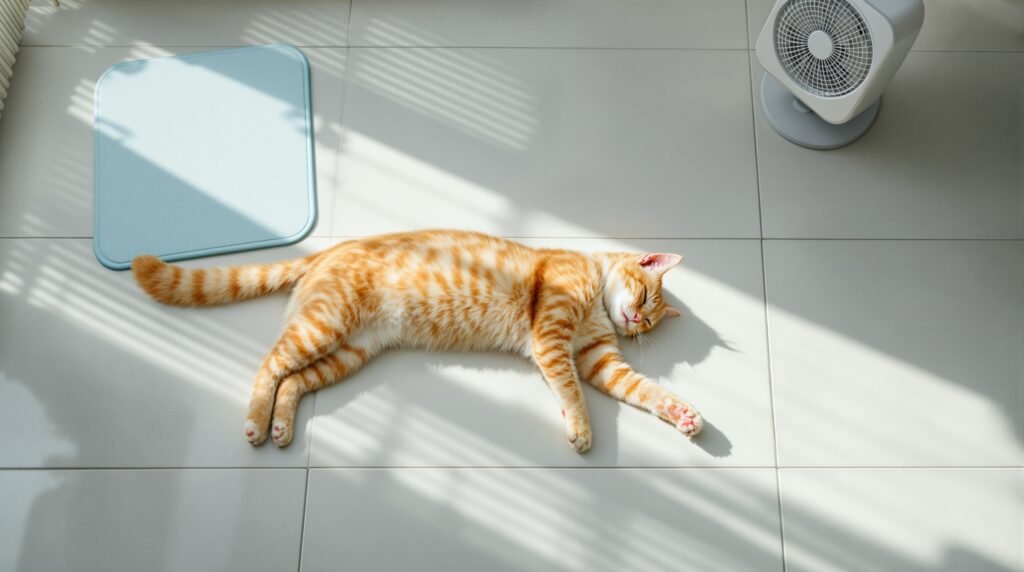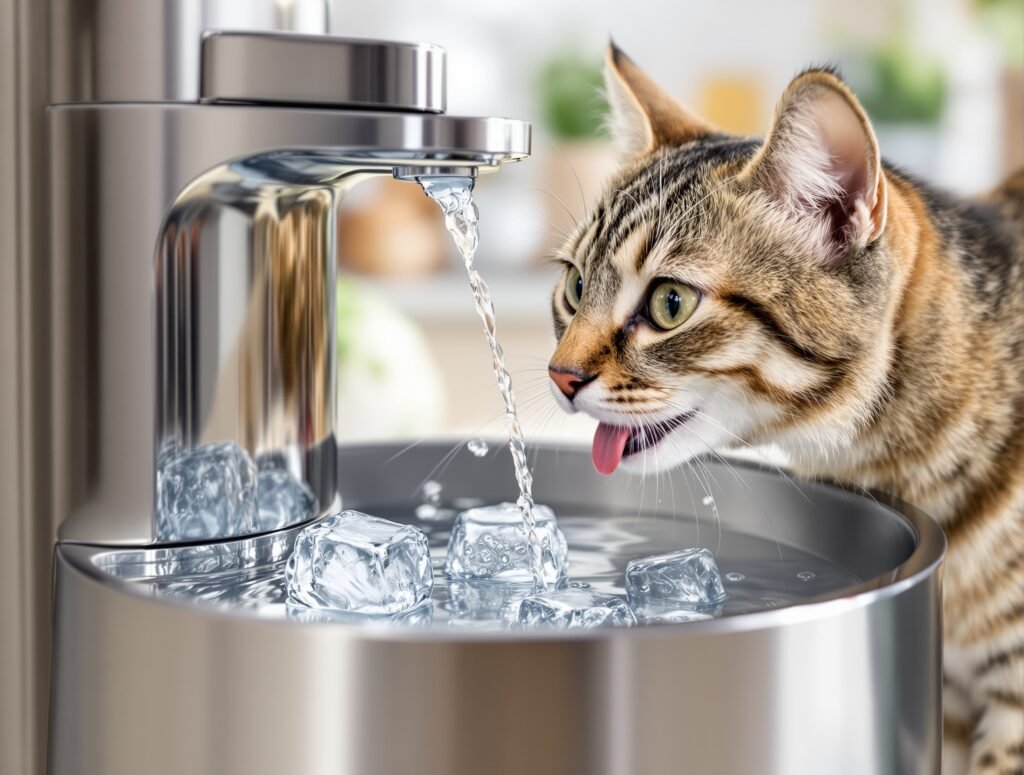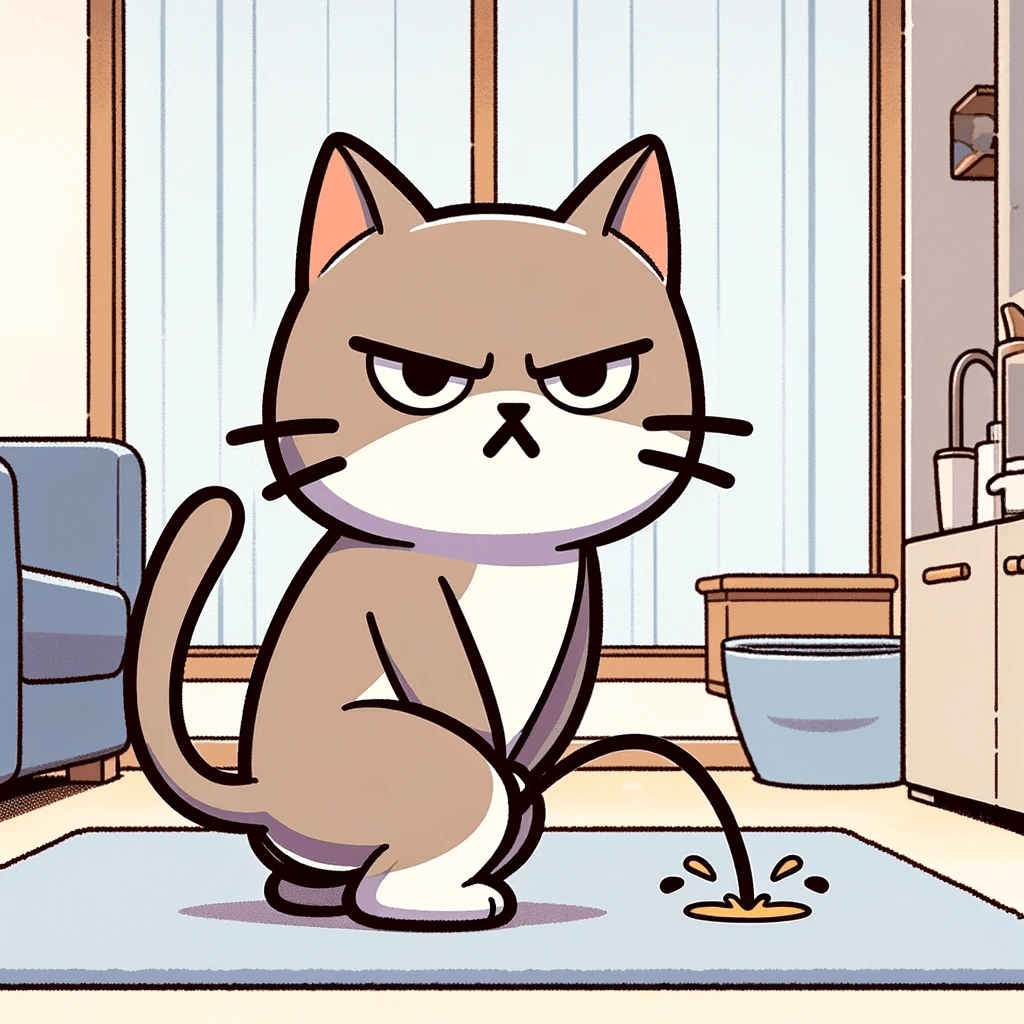Cat Cooling Tips for Hot Weather: Keep Your Feline Safe This Summer
As summer temperatures soar, ensuring your cat stays cool and comfortable becomes a critical responsibility for pet owners. Unlike humans, cats have limited ability to regulate their body temperature, making them vulnerable to heat-related illnesses. This comprehensive guide provides evidence-based cat cooling tips for hot weather to help you protect your beloved feline companion during the warmest months.
Understanding How Cats Regulate Body Temperature
Before implementing cat cooling tips for hot weather, it’s essential to understand your cat’s unique thermoregulation system. Cats maintain a naturally higher body temperature than humans, typically ranging from 38°C to 39.2°C (100.5°F to 102.5°F). However, their cooling mechanisms differ significantly from ours.
Unlike humans who sweat across their entire body, cats only sweat through their paw pads and small hairless areas around their mouth and ears. Their primary cooling method is panting, which allows moisture to evaporate from their respiratory tract. Understanding cat wellbeing fundamentals helps you recognize when your cat needs cooling assistance.
The Heat Sensitivity Factor
Cats are more heat-sensitive than many pet owners realize. While cats prefer warmer environments than humans—their thermoneutral zone is actually 30-38°C (86-100°F)—they struggle once temperatures exceed this range. Environmental temperatures above 35°C (95°F) can quickly become dangerous without proper cooling measures and adequate hydration.
Recognizing Signs Your Cat Is Overheating
Among the most crucial cat cooling tips for hot weather is knowing when your feline is in distress. Early recognition of heat stress can prevent life-threatening heatstroke. Watch for these warning signs:
Early Warning Signs:
- Excessive panting with an open mouth
- Increased drooling or salivation
- Restlessness or seeking cool surfaces
- Lethargy and reduced activity
- Rapid breathing
Advanced Heat Stress Symptoms:
- Bright red or purple gums
- Vomiting or diarrhea
- Stumbling or uncoordinated movement
- Weakness or collapse
- Confusion or disorientation
If your cat displays severe symptoms, this constitutes a veterinary emergency requiring immediate professional attention. Don’t wait for symptoms to improve—contact your vet immediately as heatstroke can cause irreversible organ damage within minutes.
Essential Cat Cooling Tips for Hot Weather: Creating a Cool Environment
Temperature Control Is Paramount
One of the most effective cat cooling tips for hot weather involves managing your home’s temperature. While cats enjoy warmth, maintaining a comfortable indoor environment during extreme heat is critical:
- Air Conditioning: Keep your home at 24-26°C (75-78°F) when you’re away, cooler when home
- Fans: Use ceiling or portable fans to improve air circulation, though fans alone aren’t sufficient in extreme heat
- Shaded Areas: Ensure all rooms have shaded spots away from direct sunlight
- Close Curtains: During peak heat hours (10 AM to 4 PM), close curtains and blinds on sun-facing windows
When deciding between indoor vs outdoor lifestyles for your cat, remember that extreme heat makes supervised indoor time safer.
Provide Cool Resting Surfaces
Cats naturally seek out cool surfaces when overheated. Encourage this instinct with these cat cooling tips for hot weather:
- Tile or Marble Floors: Cats prefer cool surfaces like tile and marble which don’t retain heat—roll up rugs to expose these areas
- Cooling Mats: Pet-specific cooling mats stay several degrees below room temperature without refrigeration
- Elevated Beds: Airflow beneath elevated beds provides natural cooling
- Damp Towels: Place slightly damp towels in your cat’s favourite spots for evaporative cooling
Remove heavy bedding from your cat’s usual sleeping areas and replace it with breathable materials. Learn more about choosing the right cat bed for different seasons.
Hydration: The Foundation of Cat Cooling Tips for Hot Weather
Proper hydration ranks among the most vital cat cooling tips for hot weather. Dehydration can escalate quickly during hot spells, leading to serious health complications.
Fresh Water Strategies
- Multiple Water Stations: Place water bowls throughout your home, especially in cool, quiet areas
- Daily Refreshing: Change water at least twice daily to keep it cool and appealing
- Ice Cubes: Adding a few ice cubes to water bowls can make drinking more enticing while providing cooling
- Water Fountains: Many cats prefer running water—cat water fountains encourage increased drinking and help maintain hydration
Moisture-Rich Foods
Incorporating wet food into your cat’s diet serves as an excellent cat cooling tip for hot weather. Wet food contains 70-80% water compared to dry food’s 6-10%, significantly boosting your cat’s fluid intake. Consider increasing wet food portions during hot weather while maintaining proper cat nutrition.
Grooming: An Underrated Cat Cooling Tip for Hot Weather
The Brushing Imperative
Regular brushing is one of the most practical cat cooling tips for hot weather. Removing excess fur improves air circulation to your cat’s skin and prevents matted fur that traps heat:
- Daily Brushing: Increase grooming frequency during hot months
- De-shedding Tools: Invest in quality de-shedding tools to remove undercoat efficiently
- Professional Grooming: Consider professional help for long-haired breeds
The Shaving Debate: A Critical Warning
Despite seeming logical, shaving your cat is NOT recommended as a cooling strategy. Veterinarians strongly advise against shaving because:
- Cat fur provides insulation against both cold AND heat
- Shaved cats have increased risk of sunburn and skin cancer
- Fur protects against heat absorption from environmental sources
- Hair may grow back unevenly or with altered texture
Understanding cat skin problems helps you recognize when coat changes affect your cat’s health.
Frozen Treats and Special Foods: Fun Cat Cooling Tips for Hot Weather
Safe Frozen Treat Recipes
Making frozen treats combines enrichment with cooling—an innovative cat cooling tip for hot weather:
Tuna Ice Cubes:
- Mix 1 can of tuna (in water, drained) with ½ cup water
- Blend until smooth
- Freeze in ice cube trays
- Serve 1-2 cubes as an occasional treat
Lactose-Free Yogurt Drops:
- Use plain, unsweetened, lactose-free yogurt
- Mix with a small amount of chicken broth
- Freeze in small portions
- Offer sparingly to prevent digestive upset
Caution: Always supervise your cat with frozen treats and introduce new foods gradually.
Chilled Broths
Offer low-sodium, onion-free, garlic-free chicken or fish broth chilled (not frozen) as a refreshing drink. This provides both hydration and encourages fluid intake in reluctant drinkers.
Outdoor Safety: Critical Cat Cooling Tips for Hot Weather
If your cat enjoys outdoor time, implement these essential cat cooling tips for hot weather:
Timing and Duration
- Limit Outdoor Time: Restrict outdoor access during peak heat hours (10 AM to 4 PM)
- Early Morning/Evening: Allow outdoor time during cooler morning or evening hours
- Supervised Access: Always supervise outdoor time during hot weather
Outdoor Cooling Provisions
- Shade Structures: Provide covered areas with good airflow
- Water Stations: Multiple outdoor water bowls in shaded locations
- Cool Surfaces: Place cooling mats or damp towels in shaded rest areas
Remember that cats with specific health conditions may need additional precautions during hot weather.
When to Seek Emergency Veterinary Care
Knowing when heat stress becomes a medical emergency is perhaps the most critical of all cat cooling tips for hot weather. Seek immediate veterinary attention if your cat displays:
- Heavy, continuous panting
- Bright red or purple gums
- Vomiting or bloody diarrhea
- Collapse or inability to stand
- Seizures or tremors
- Unresponsiveness
First Aid While Transporting:
- Move cat to a cool area immediately
- Apply cool (not ice-cold) water to paws, ears, and belly
- Use a fan to increase evaporative cooling
- Do NOT use ice-cold water as this can cause shock
Understanding recognizing pain in cats helps you assess distress levels and respond appropriately.
Special Considerations for At-Risk Cats
Certain cats require extra vigilance when implementing cat cooling tips for hot weather:
High-Risk Categories
- Senior Cats: Older cats have reduced thermoregulation ability
- Kittens: Young cats haven’t fully developed cooling mechanisms
- Flat-Faced Breeds: Persian and Exotic Shorthairs have compromised respiratory function
- Overweight Cats: Excess body fat impairs heat dissipation
- Cats with Health Conditions: Heart, respiratory, or kidney disease increases heat sensitivity
If your cat falls into any high-risk category, consult with your vet about specific cat cooling tips for hot weather tailored to their needs. Regular veterinary check-ups help identify heat-related vulnerabilities.
Common Mistakes to Avoid
While implementing cat cooling tips for hot weather, avoid these counterproductive practices:
❌ DON’T leave your cat in a parked car—even for “just a minute” ❌ DON’T force your cat to swim or bathe unless they tolerate it (bathing can cause stress) ❌ DON’T use ice-cold water for cooling (causes vasoconstriction and shock risk) ❌ DON’T shave your cat’s coat ❌ DON’T ignore early warning signs of heat stress
Conclusion: Implementing Cat Cooling Tips for Hot Weather
Protecting your cat from heat stress requires proactive planning and vigilant observation. By implementing these evidence-based cat cooling tips for hot weather, you can ensure your feline companion stays safe, comfortable, and healthy throughout the warmest months.
Remember the fundamentals: maintain a cool environment, ensure constant access to fresh water, provide cooling surfaces, never shave your cat, and monitor for signs of distress. When in doubt, err on the side of caution and consult your veterinarian.
For more information about keeping your cat healthy year-round, explore our guides on cat wellness, managing cat stress, and understanding cat behavior.
Stay cool, and keep your feline friends cooler!
Further Reading:




